
Shawn L. Ramirez
I received my Ph.D. from the
University of Rochester in 2013, was a College Fellow at
Harvard University’s Government Department and the
Weatherhead Center for International Affairs from 2011-2013, and have been an assistant
professor at Emory University
since 2013.
Curriculum Vitae PDF
Contact me at veryslr at gmail dot com, or visit my
Linked In.
Bio
I am a political scientist specializing in advanced quantitative methodology, econometrics, and game theory. I aim for impactful theory and data-driven insights using a variety of tools. I am interested in opportunities to take on complex challenges and provide solutions in a collaborative, fast-paced, and goal-oriented environment.
- I create mathematical and game theoretic models to analyze and predict strategic behavior.
- I computationally analyze structured and unstructured data (event, panel, longitudinal, text, networks, and GIS) to evaluate predictions and test hypotheses.
- I deploy advanced quantitative methods, econometrics/statistics, experiments, data mining, analysis, visualization, and interpretation to create powerful data-driven results.
- I communicate complex techniques and analyses to diverse audiences (radio, TV, conferences, classrooms, peer-reviewed journals).
- I teach courses and workshops on econometrics, statistics, game theory, causal inference, survey/lab/field experiments, and political science.
- R (10+ yrs), Python (2+ yrs), Stata (9+ yrs), Qualtrics (5+ yrs), NLP
Research
How mediators can be more effective with secrecy and agenda-setting
- I generate predictions about the effect of mediation on strategic bargaining by creating a game theoretic model.
- I evaluate the predictions using a case study of the U.S. and North Korean nuclear crisis.
- I provide recommendations to improve mediation, the development of political institutions, and conflict resolution between dictatorships and democracies.
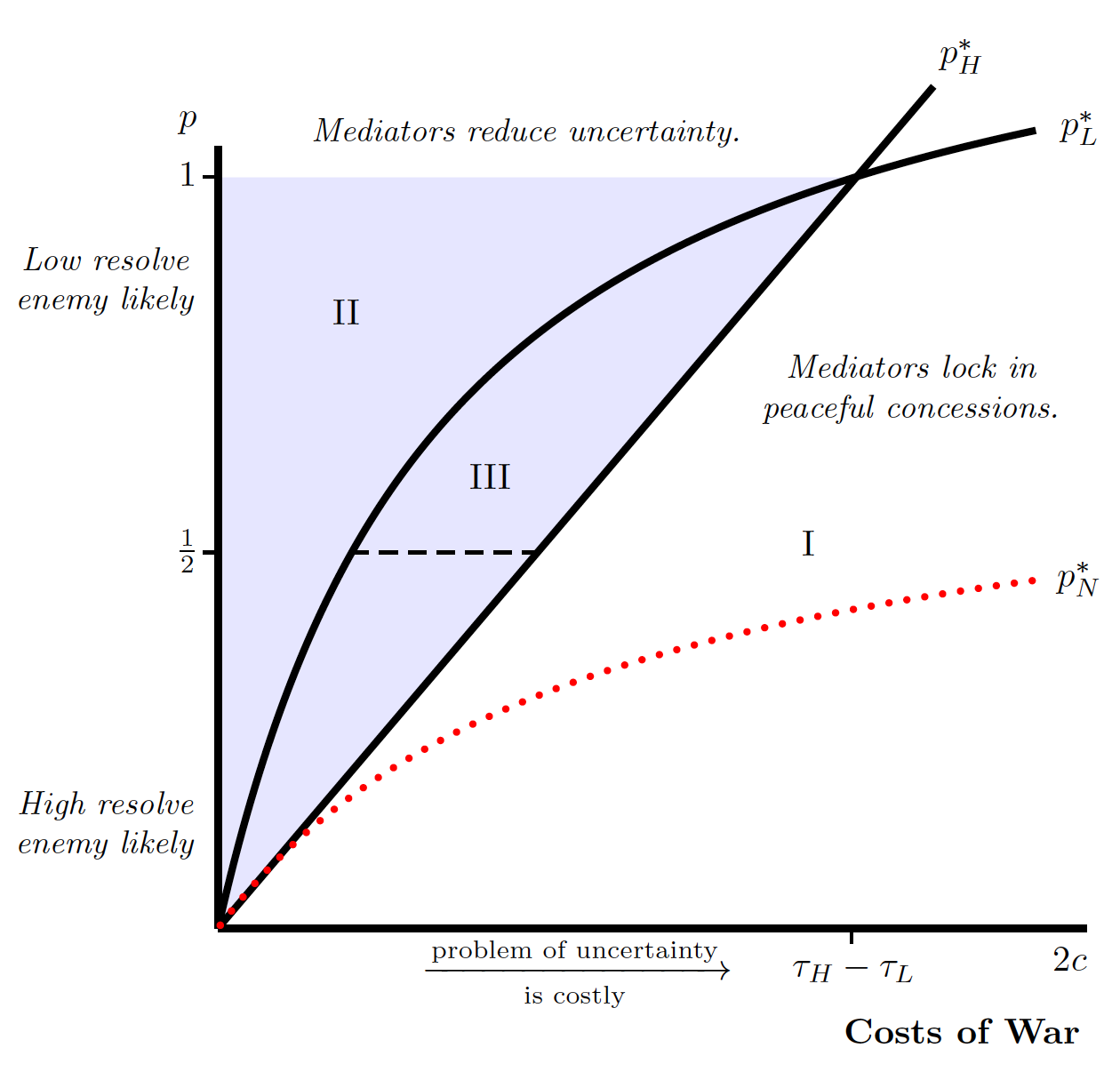
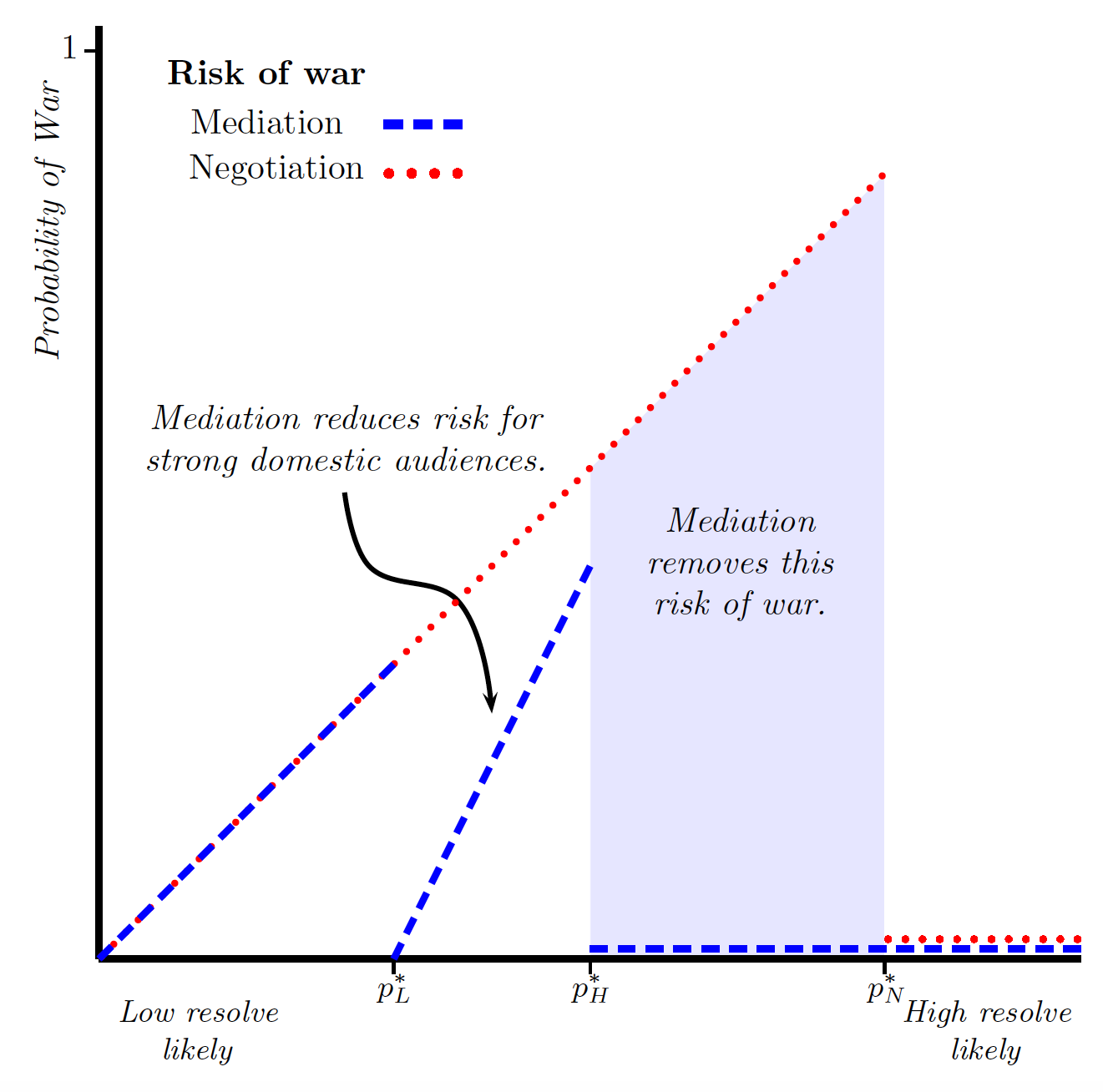
Ramirez, Shawn L. "Mediation in the Shadow of an Audience: How Third Parties Use Secrecy and Agenda-Setting To Broker Settlements." Journal of Theoretical Politics, 2017. (PDF, Appendix)
Revealing hidden terrorist motives with observable attack behavior
- We construct a classifcation scheme to differentiate terrorist affiliates conceptually and empirically.
- We use clustering and regression analyses, and find that targets and tactics aid in identifying latent terrorist types, and tracking them over time.
- We find that most of Al Qaeda's network focuses on civil conflicts, with fewer than 12% targeting the West or using attacks likely to reach global audiences.
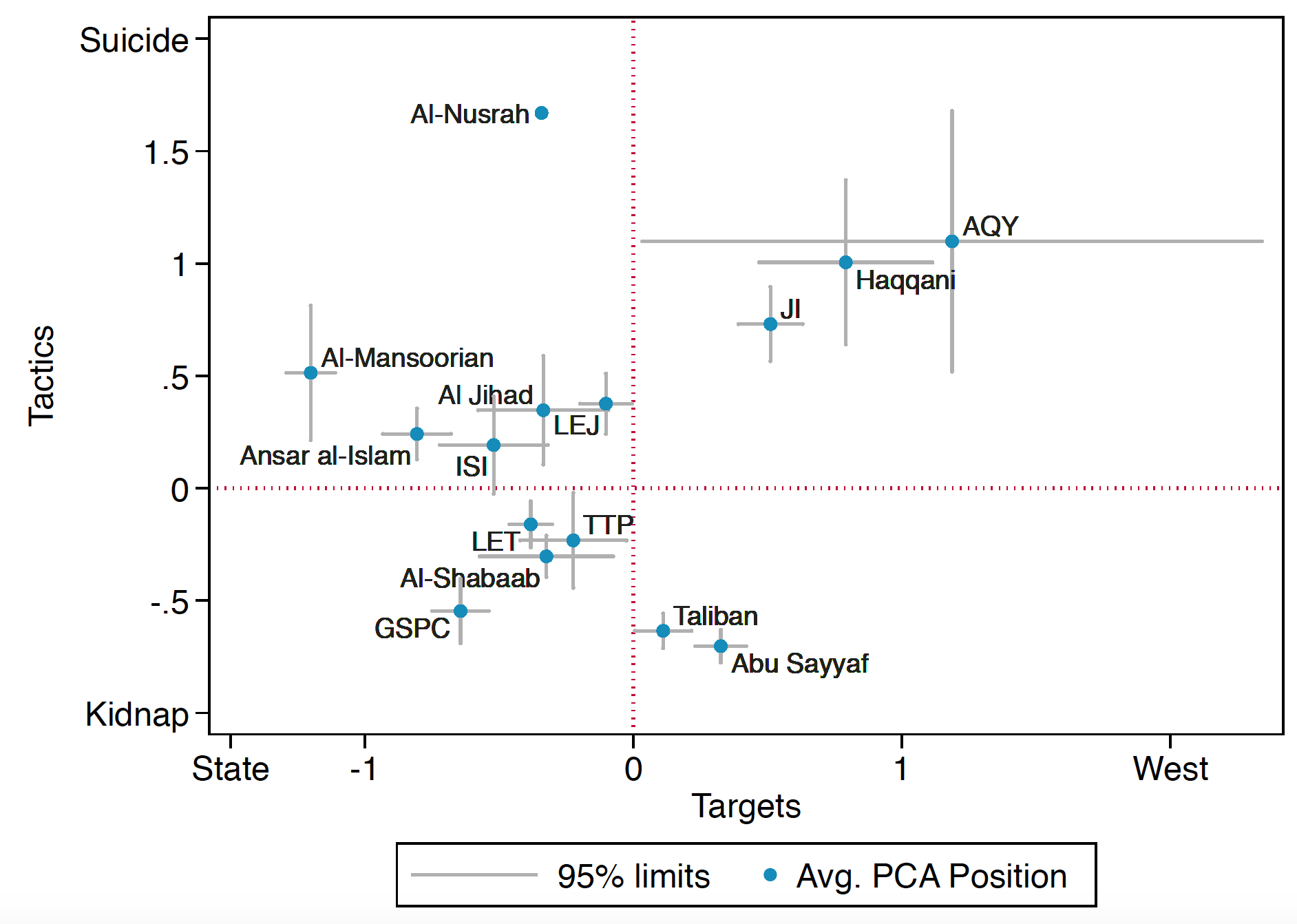
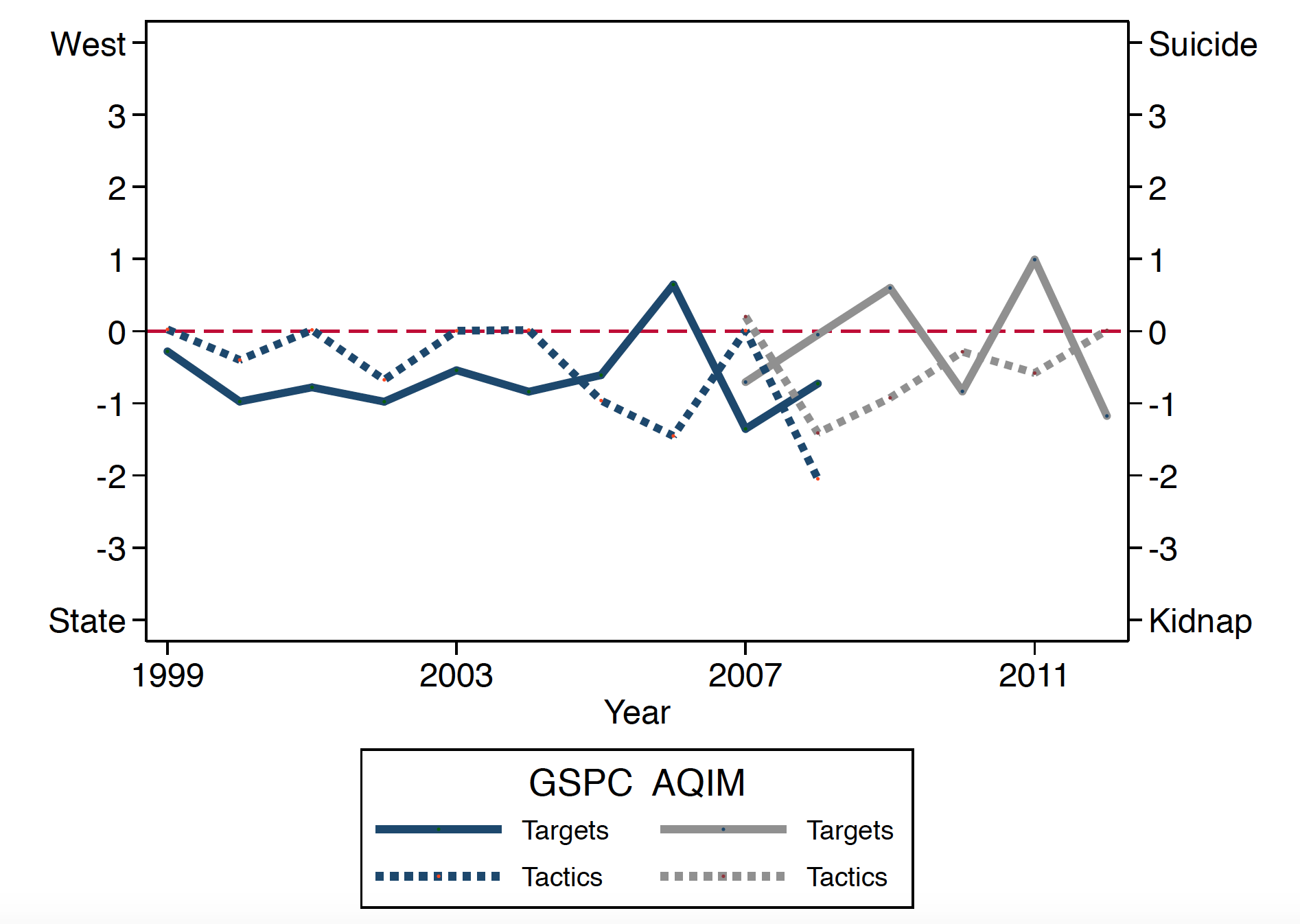
Ramirez, Shawn L., and Arianna J. Robbins. "Targets and Tactics: Testing For A Duality Within Al Qaeda's Network." International Interactions, 2017. (PDF, Appendix)
Spatial and Temporal Patterns in the Isreali-Palestinian Conflict
- I use multidimensional Hawkes process models to explore the spatial and temporal diffusion of violence with micro-level data collected from weekly reports.
- I find that much of the violence can be explained by the spatial diffusion of attacks by civilians, while controlling for the weapon type and severity -- with little evidence of temporal excitation.
- My results suggest that violence can be more effectively reduced by addressing neighborhoods of civilian-led retaliation.
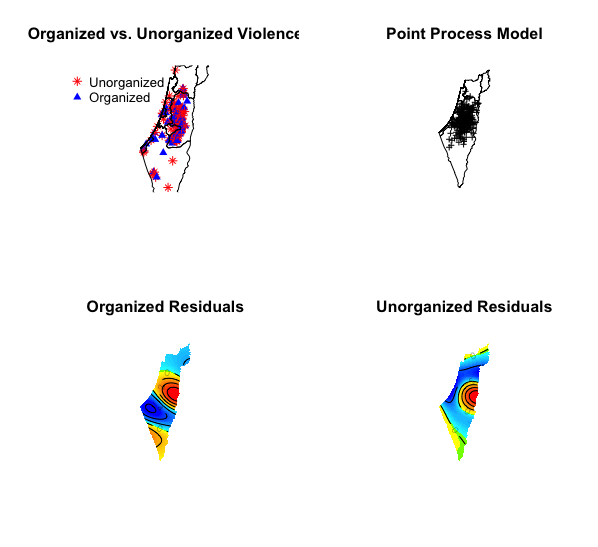
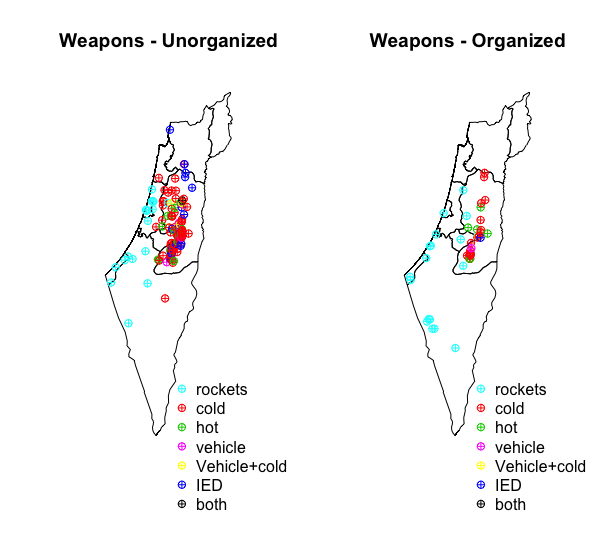
Identifying hierarchies in terrorist networks with minimal information
- We show how terrorist communications can reveal sets of mutual influence, and a network's latent hierarchical structure using an algorithm based in graph theory.
- We apply our methodology to the Sept. 11th hijacker network and a larger network of 62 terrorists.
- Our method aids in revealing hierarchical structure, leaders, and types of terrorist operatives.
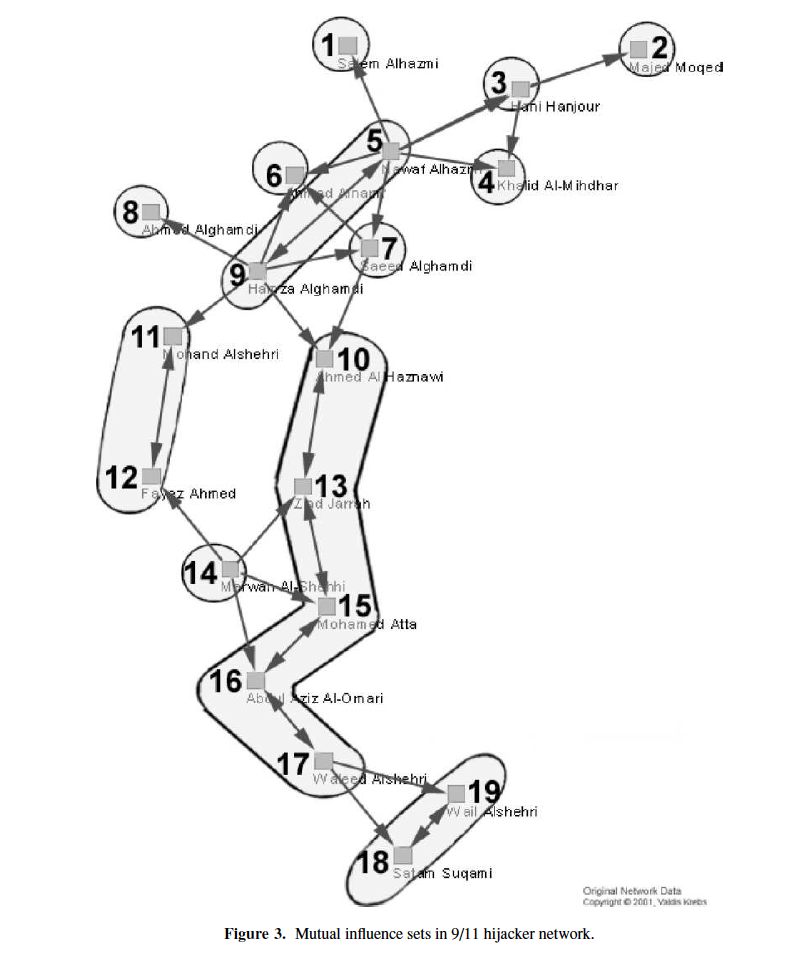

Brams, Steven J., Hande Mutlu, and Shawn Ling Ramirez. "Influence in Terrorist Networks: From Undirected to Directed Graphs." Studies in Conflict and Terrorism, 29.7 (2006): 703-718. (PDF)
Book
Strategic Delegates in War: The Political Use of Mediators and their Impact on Peace. Manuscript in progress.
Under Review
Secrecy and War: `Open Covenants of Peace, Secretly Arrived At’.
Power Sharing and Ethnic Conflict: The Effect of Discretized Political Goods on Exclusion and War, with Hyesung Kim.
The Strategic Determinants of Terror Financing, with Cole Margol.
Domestic Power Sharing and War: How Clarity of Responsibility Affects Conflict.
Working Papers
Audience Costs: A Model and Survey Experiment, with KiYoung Chang.
Public Concerns for National Reputation: Can Audience Costs Allow for Deception?
Limited Wars and Border Disputes: The Effect of Domestic Policy Options on Diversionary War.
Additional
I advised and directed research as faculty for the Empirical Implications of Theory and Methods at UC Berkeley (2013), Duke (2014), and the University of Michigan (2015), the Institute for Quantitative Theory and Methods, the Center for the Study of Law, Politics and Economics, and the Scholarly Inquiry and Research program at Emory.
I advise the undergraduate Emory Journal of International Affairs, and the Emory Globe, a student organization focused on global news.
International Diplomacy Project
I am collecting data using student-powered simulations to explore how multilateral negotiations and diplomacy works. The simulations have been run annually since 2013, and has expanded to include participants from Georgia Tech, Morehouse College, Spelman College, Agnes Scott, and Kennesaw State University.
As a research endeavor, I designed the project to use real world data, new technology to track participants (RFID tokens), and social media to track dialogue. This research takes the first step in identifying the value of face-time, secrecy, mediation, and bilateral talks in simulating diplomacy.
Additional resources can be found here: Project Website.